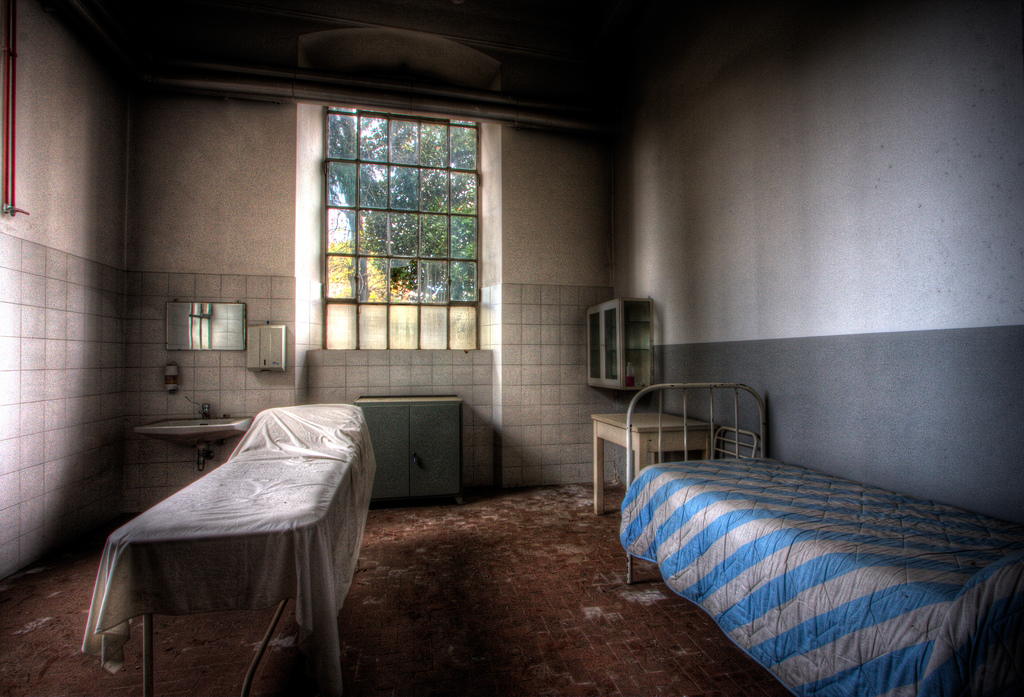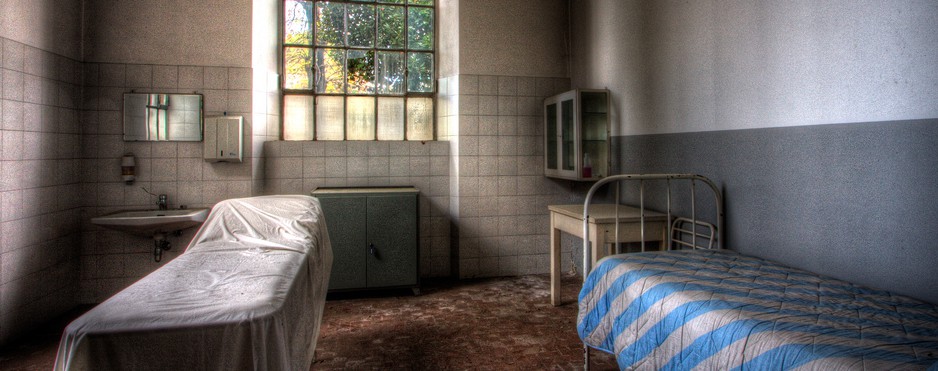
September 15, 1985:
Valentin Câmpeanu is born. He is a Romanian citizen of Roma ethnicity abandoned by his mother at birth and placed in a foster home.
1990:
Valentin is considered to be part of the severe disability group, having “profound mental retardation” and “an IQ of 30”. He is also confirmed to be HIV-positive, a virus he contracted during the pregnancy.
2003:
The boy turns 18 and is meant to be on his own. However, because of his condition the government is forced to take responsibility for him.
February 5, 2004:
Valentin is placed in a medical institution that supposedly suits his needs, after his medical file reads “average disability group” and signs of “social integration”.
February 6/7,2004:
He starts feeling agitated and is violent towards members of staff and other patients.
February 9, 2004:
Valentin is taken to Poiana Mare Neuropsychological Hospital (PMNH) for examination.
February 13, 2004:
The boy is once again taken to PMNH, this time for four to five days of psychiatric therapy.
February 1,9 2004:
He stops eating and taking his medication. He is prescribed an IV treatment. He is however found to be in a damaged state.
February 20, 2004:
A group of volunteers from the Centre for Learning Resources (CLR) is inspecting the PMNH and finds Valentin in horrible conditions, with only his pyjama blouse on, in a cold room and with no help to eat or use the bathroom, which at that time he could not do alone. They inform the hospital staff, however on that night Valentin is found dead.
His story did not end there. In the following days, the CLR decided to pursue legal action against the Romanian government which has obviously misplaced Valentin and mistreated his medical condition. They take the case to the European Court of Human Rights (ECHR), even though Valentin is dead and he cannot file a claim anymore. Until this case, the ECHR has not accepted any case on behalf of deceased clients. For 10 years, the NGO CLR had fought alongside Interights, a London-based charity which offers legal consulting services, to move the case further and prove the importance of bringing justice to Valentin Câmpeanu to the authorities.
In 2014, a decision has been made, a historical one we could say. The grand jury of the ECHR ruled in favour of Valentin Câmpeanu and sentenced the Romanian government to pay € 25,000 to CLR and € 10,000 to Interights, for the costs involved in maintaining the lawsuit.
“Given the timeline of Valentin’s life and the improper and poor manner in which he has been taken care of, there is no doubt the Romanian Government need to be held accountable for his death. However, the sentence given by the ECHR is questionable.”
Given the timeline of Valentin’s life and the improper and poor manner in which he has been taken care of, there is no doubt the Romanian Government need to be held accountable for his death. However, the sentence given by the ECHR is questionable. The purpose of this lawsuit seemed to make the Romanian civil society as well as the political class aware of the situation in the medical system and of what should be the repercussions of negligence towards citizens. But instead of asking the Romanian government, for example, to implement a self-regulating system of the medical institutions, in particular those dealing with members of minorities, which could be overseen by an NGO, they sentenced the government to only pay money to the two NGOs that have supported the case in court. Asked how the money will be used, a representative from Interights responded that “the money represent the expenses of the organisation that have supported the case in court and in front of authorities for ten years. Therefore the money will be used however they find it appropriate, limited by their charitable purpose.”
It is thus difficult to say whether there won’t be any other case like Valentin Câmpeanu’s in Romania; it is yet unknown whether the Romanian government will take the necessary measures to regulate the irregularities in the medical sector. The fate of Romania’s parentless, disabled and Roma-ethnical citizens is still undecided.
About the author:
 Anathea (19) is a member of the Youth Council for the Future. She is involved in “My Europe” since the workshop in Bucharest in 2011.
Anathea (19) is a member of the Youth Council for the Future. She is involved in “My Europe” since the workshop in Bucharest in 2011.

